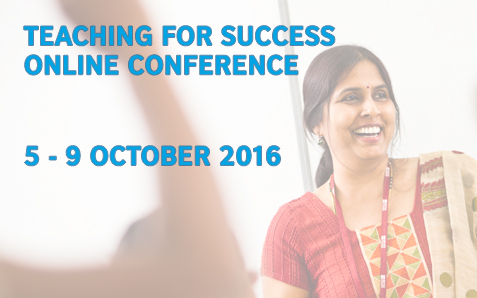
About the webinar
Telling stories of professional experience can be a powerful form of development for teachers and teacher educators. It can help teachers to understand and make more informed decisions about their classroom practices. Teacher knowledge involves the interaction of theory with beliefs and experience, primarily about the daily reality of teachers’ lives, and does not, in the main, comprise the knowledge in academic texts, which for many teachers seems to have little relation to their teaching. Setting up teachers’ conversation or storytelling groups can provide the space, time and support for teachers to consider and present a shaped version of their classroom experiences. Such groups also function to build strong teacher communities or networks, raising commitment to teaching quality, and thus benefiting not only individual teachers but their educational institutions.
In this talk, Briony sketches out the background to storytelling for teacher and teacher educator development, including clarifying the role of narrative in learning. She illustrates how teachers and educators can create a collaborative learning space that links personal experiences of teaching and training to the realm of public knowledge. She briefly surveys ways of focusing teachers’ professional stories, for example thematising storytelling sessions, reframing stories and comparing the story of a feature film or novel in which the hero or heroine is a teacher with one’s own teaching story.
About the speaker
Briony started her career teaching English in a British secondary state school. She is now an ELT consultant, teacher trainer, materials writer and teacher. She is the Delta Course Director for the Munich Adult Education Institute, and is also a CELTA Tutor and Assessor and a Delta Assessor. Briony is a NILE Associate Teacher Trainer, who has worked with teachers in many countries including the UK, Germany, Austria, Poland, Libya, Turkey, Russia and China, and who currently supervises students on the NILE MA course. In addition, she teaches Classroom Language to trainee teachers at the Ludwig-Maximilians University, Munich.
Briony has been the Co-ordinator of the Teacher Trainers’ and Educators’ Special Interest Group of IATEFL and Editor of IATEFL Conference Selections. She has presented at many international conferences including IATEFL Annual Conference, International House London Teacher Educators’ Conference and English Teaching Professional Conference. Briony has written coursebooks for Oxford University Press and for Cornelsen Verlag, and a teacher development course for the British Council China, as well as publishing in The Teacher Trainer, English Teaching Professional and Folio. Her ELT qualifications include the UCLES Dip. TEFL and a Doctorate of Education in TEFL.